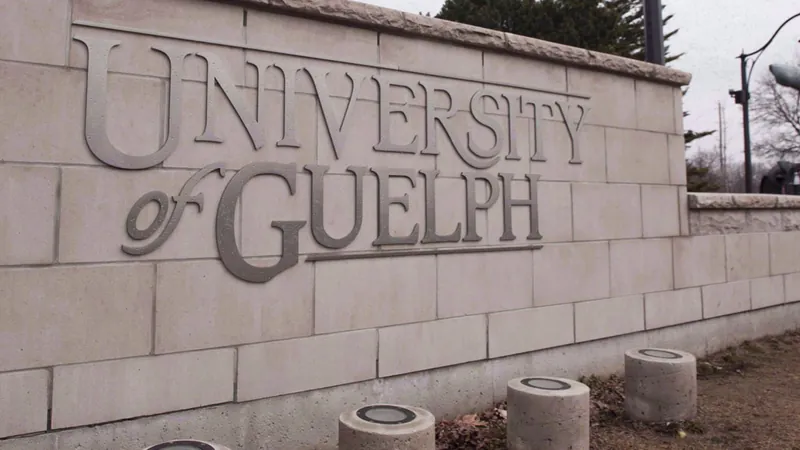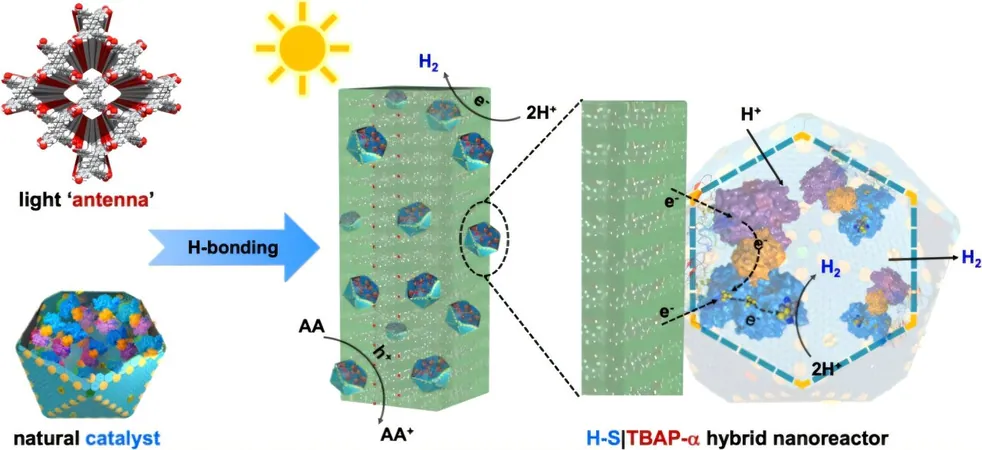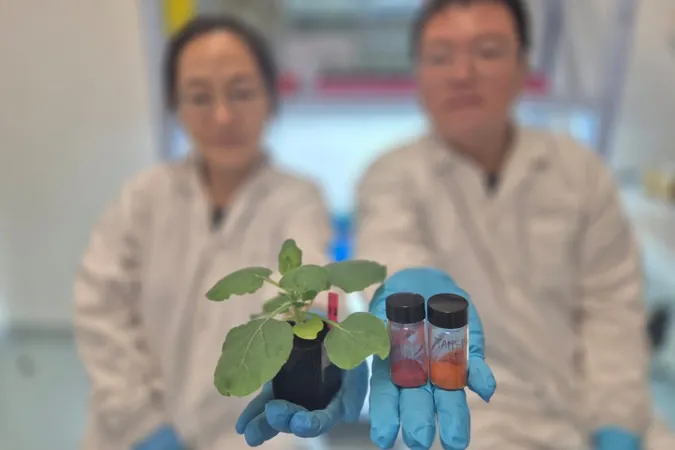
Groundbreaking Wastewater Testing Resumes in Guelph: A Game Changer for Disease Detection!
2024-12-17
Author: Noah
Introduction
In a proactive response to the lessons learned from the COVID-19 pandemic, researchers at the University of Guelph (UofG) have revitalized a crucial wastewater testing program that was halted by the provincial government in July. This initiative aims not only to monitor COVID-19 levels but also to detect other infectious diseases like respiratory syncytial virus (RSV) and influenza, establishing a framework to preempt future outbreaks.
Importance of Early Pathogen Detection
Dr. Lawrence Goodridge, a key figure behind the initiative, who serves as a Professor in the Department of Food Science and co-director of the Integrated Network for the Surveillance of Pathogens (INSPIRE), emphasized the importance of early pathogen detection. 'The disruptions in biomanufacturing and biomedical supply chains during the pandemic showcased a critical need for timely information in order to adapt and respond effectively,' he stated. The objective is to utilize wastewater analysis to identify these pathogens before they lead to significant infections, allowing supply chains to prepare accordingly.
Financial Support and Community Impact
The program's revival was bolstered by a substantial $15 million investment, predominantly from the Canada Biomedical Research Fund. Currently, Guelph is the sole city benefiting from this funding, but efforts are underway to extend monitoring to communities like Orangeville and the Niagara Region that were covered prior to budget cuts.
Data Collection and Community Engagement
Moreover, the Wellington-Dufferin-Guelph Public Health (WDG Health) dashboard has started updating with new data collected weekly from UofG, with the program expected to continue for the next three to four years. University students will play a critical role in data collection, gaining invaluable experience while contributing to a pressing real-world issue.
Significance of the Initiative
Dr. Nicola Mercer, Medical Officer of Health and CEO of WDG Health, highlighted the significance of this initiative, stating, 'Good health decisions come from good information. The leadership from UofG equips our community with essential data, enhancing our public health decision-making.'
Challenges in Other Regions
While the University of Windsor and the University of Ottawa have also reinstated their wastewater monitoring programs, they currently face significant data gaps, especially in regions that previously experienced spikes in COVID-19 variants. Dr. Goodridge pointed out that major areas like the Greater Toronto Area and Northern Ontario lack comprehensive surveillance, leading to a disjointed approach in tracking the spread of diseases.
National Surveillance Efforts
Furthermore, although the Public Health Agency of Canada is expected to contribute some surveillance efforts in key areas like Toronto, a structured national plan remains elusive.
Conclusion
Having pioneered wastewater testing in Canada during the pandemic, UofG is uniquely positioned to resume these efforts effectively, thanks to their established infrastructure and expertise in the field.
Current Status of Viral Activity
As of December 2023, the national wastewater monitoring dashboard revealed that viral activity for COVID-19 remains moderate across the country, with Flu A at moderate levels, Flu B described as low, and RSV activity significantly heightened. This highlights the urgent need for continuous monitoring to manage the evolving landscape of infectious diseases.
Future Outlook
Stay tuned as Guelph takes a stand in the fight against future outbreaks, showcasing how academic research can dramatically reshape public health responses!









 Brasil (PT)
Brasil (PT)
 Canada (EN)
Canada (EN)
 Chile (ES)
Chile (ES)
 España (ES)
España (ES)
 France (FR)
France (FR)
 Hong Kong (EN)
Hong Kong (EN)
 Italia (IT)
Italia (IT)
 日本 (JA)
日本 (JA)
 Magyarország (HU)
Magyarország (HU)
 Norge (NO)
Norge (NO)
 Polska (PL)
Polska (PL)
 Schweiz (DE)
Schweiz (DE)
 Singapore (EN)
Singapore (EN)
 Sverige (SV)
Sverige (SV)
 Suomi (FI)
Suomi (FI)
 Türkiye (TR)
Türkiye (TR)